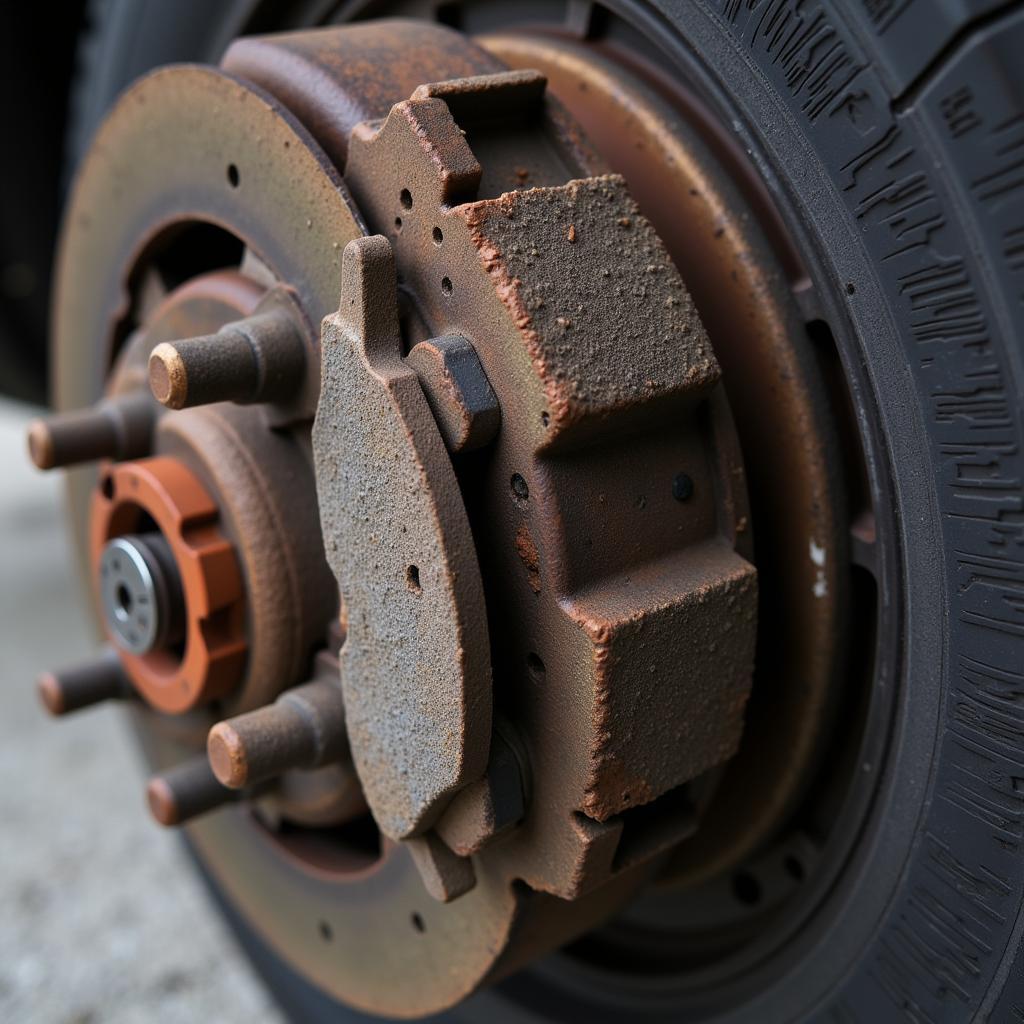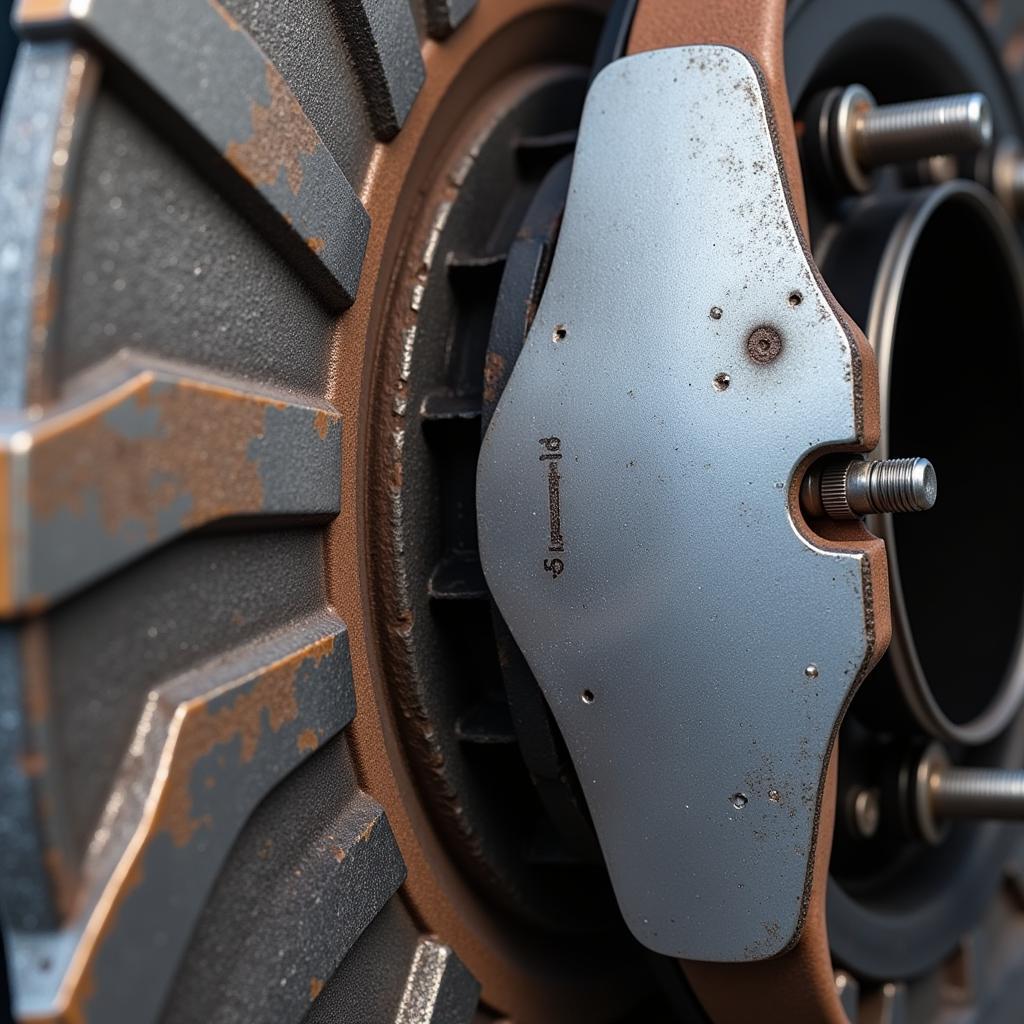Hearing a strange noise coming from your brakes can be alarming. Whether it’s a grinding, squealing, or scraping sound, any unusual brake warning noise should never be ignored. This is your car’s way of telling you something is wrong and needs attention. This article will guide you through the common causes of brake warning noises, how to diagnose the problem, and the steps you can take to fix it.
Understanding Brake Noise
Before we dive into specifics, it’s important to understand why brakes make noise in the first place. Your car’s braking system relies on friction to slow down or stop the vehicle. When you press the brake pedal, brake pads are pressed against the brake rotors, creating friction. Over time, the brake pads and rotors wear down, and this wear and tear can cause noises.
Common Brake Warning Noises and Their Causes
Here are some of the most common brake warning noises you might encounter:
- High-pitched squealing or screeching: This is often a sign that your brake pads are worn down and need to be replaced. Most brake pads are designed with a small metal indicator that makes this noise when it comes into contact with the rotor, alerting you that it’s time for new brakes.
 Worn brake pads with wear indicator
Worn brake pads with wear indicator
- Grinding or scraping noise: A loud grinding or scraping sound usually means that your brake pads are completely worn down, and the metal backing plate is rubbing against the rotor. This can cause significant damage to your rotors, leading to costly repairs.
 Brake pad metal making contact with the rotor
Brake pad metal making contact with the rotor
- Clicking or clunking noise: This could indicate a problem with the brake caliper or other brake hardware. Loose parts or worn-out caliper pins can cause these noises, affecting brake performance.
**
- Intermittent squeaking or squealing: This can be caused by moisture or rust on your brake rotors, especially after your car has been parked for a while. The noise usually goes away after you’ve driven for a short distance.
Diagnosing the Problem
If you’re experiencing any of these brake warning noises, it’s important to diagnose the problem as soon as possible. While some issues might seem minor, they can quickly escalate into major safety hazards if left unaddressed.
“Ignoring brake noises is like ignoring a flashing check engine light,” says John Smith, a seasoned automotive engineer with over 20 years of experience in brake systems. “It’s crucial to get your brakes inspected by a qualified mechanic at the first sign of trouble.”
Here’s what you can do:
- Listen carefully: Pay attention to the type of noise, when it occurs (while braking, accelerating, turning), and its frequency.
- Inspect your brakes: If you’re comfortable doing so, take a look at your brakes. Check the brake pad thickness and look for any signs of wear and tear, damage, or unusual debris around the calipers and rotors.
- Consult a professional: If you’re unsure about the cause of the noise or don’t feel comfortable inspecting your brakes yourself, take your car to a trusted mechanic specializing in brake repair.
Brake Repair and Maintenance
Once you’ve diagnosed the problem, you can take steps to fix it. This may involve:
- Replacing brake pads: This is a standard maintenance procedure and should be done regularly based on your vehicle manufacturer’s recommendations.
- Resurfacing or replacing rotors: If your rotors are damaged or worn beyond a certain limit, they may need to be resurfaced or replaced.
- Repairing or replacing brake calipers: Issues with calipers might require repairs or replacement, depending on the severity of the problem.
Preventing Future Brake Problems
Here are some tips to help you prevent future brake problems and ensure optimal braking performance:
- Follow your car’s maintenance schedule: Adhere to the manufacturer’s recommended brake inspection and service intervals.
- Avoid riding your brakes: Constantly keeping your foot on the brake pedal can cause excessive wear and tear.
- Brake smoothly: Avoid harsh braking whenever possible to minimize stress on your braking system.
Conclusion
Brake warning noises are serious and should never be ignored. By understanding the common causes, taking the time to diagnose the problem, and addressing it promptly, you can ensure your safety on the road and extend the life of your car’s braking system.
Remember, when it comes to brakes, it’s always better to err on the side of caution. If you’re unsure about anything, don’t hesitate to seek professional help. You can find resources like “brake pad warning noise” or “disc brake warning sound” online for more information. For those residing in Warner Robins, Georgia, a simple online search for “where to get a brake job in warner robins ga” can provide you with local options.
